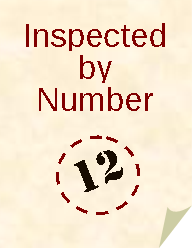 Recently, we ran a post showing you How Indies Unlimited Works. We explained about our staff and our content, including the features we run which help authors promote their work. Book promotion is only a small portion of what we offer here on Indies Unlimited. We run only two paid feature spots per week. The rest of the book promo opportunities we offer are of the free variety: book briefs, announcements, or book video trailers.
Recently, we ran a post showing you How Indies Unlimited Works. We explained about our staff and our content, including the features we run which help authors promote their work. Book promotion is only a small portion of what we offer here on Indies Unlimited. We run only two paid feature spots per week. The rest of the book promo opportunities we offer are of the free variety: book briefs, announcements, or book video trailers.
We also offer some self-serve posts, wherein we invite authors to post links to their books in certain formats or venues. Books listed in those post threads are subject to a lower standard of vetting focused on whether the book genre is within those accepted on the site.
All books featured on Indies Unlimited, whether the promotion is free or paid, are run through a vetting process. This is why we ask that all queries, including those for paid advertising, include a link to the book authors want featured. We need to see how this book is presented – so we will know what our readers will encounter if they click through to the book’s purchase page.
These are the things we check for on the book’s purchase page:
- Book cover image and cover text
- Strong and concise book description (sales blurb)
- Reviews
- Book’s attachment to the Author Central Page (and merged with other editions)
- Book preview text
- Categories to which the book is assigned
These items help us determine how a reader will feel when they get to the book’s page, and if the book is a good fit for our site. We also let the authors know if they need to claim their books to their Author Central page, etc. Yes, we do all that. After all, we’re here to help.
The book vetting process is done in two phases. The first phase entails review of the book’s cover, categories, and the Amazon Author Central page. If there is an issue with these, the author will be notified, and we will provide him/her with helpful links and suggestions. Our hope is to assist authors in making their books attractive and accessible to readers. If authors are open to our suggestions, we will be glad to work with them, and will move forward to the next stage: the book’s reviews, description, and preview. Although the words inside are the most important, the book’s cover is the first thing a reader might use to drop the book from consideration. That’s why we look at that first.
The number one problem we encounter is a book’s description. When this happens, we run the book description by our vetting folks (also volunteers) and ask them for input. Then we get back to the authors with questions/comments in hopes of helping them improve their book’s description so that people will want to click through and read their book’s preview. We’ve got a slew of information on how to write good book descriptions. Please take advantage of those articles.
Before we get back to them, however, we use the Look Inside feature to read the preview of their books. We look for the following in the book’s preview:
- Formatting errors (indentations, extra line spaces, ToC links, etc.)
- Quality of writing (grammar and punctuation, word repetition, etc.)
- Front matter content/quantity
We’re not looking for perfection, but not all books pass muster. Some books have formatting issues, some books have preview issues (which are at times caused at Amazon – such as previews entirely in italics) and the author should be notified of these since this could be detrimental to sales. Potential customers don’t know that the italics are only showing up in the preview – they assume the entire book is like that. Sale lost. We authors only have one shot at making a good first impression – and problems like these prevent that.
If the quality of writing is questionable, the book’s preview will be evaluated by at least three people. Sometimes quality can be a style issue which could be a matter of personal taste, so we strive to avoid that type of thing by involving more than just one person. If there is a split decision, we lean in the author’s favor. So, if we send you an email letting you know about problems with your book, there’s no need to get defensive or snippy. We also direct you to free resources to help you fix those problems. We are not interested in squeezing anyone for a buck.
Does this make us gatekeepers? No. Indies Unlimited has a very high profile and web ranking. The better that standing, the better it serves the authors who feature their books here. Your promo makes up part of our content. As Vidal Sassoon said, If you don’t look good, we don’t look good.
Why do we do all this? Because we can. It’s about credibility. And quality. We want readers to know that when they see a book on Indies Unlimited, it’s been vetted and they can trust it will be good quality. We want to dispel the myth that Indie books aren’t as good as other books. We want authors to be proud when their books are accepted, and we want to help those whose books need work.
After all, why would anyone want to advertise (paid or otherwise) a book that’s not ready? Why blow that shot at making a good first impression?

One thought on “The I.U. Vetting Process”
Comments are closed.